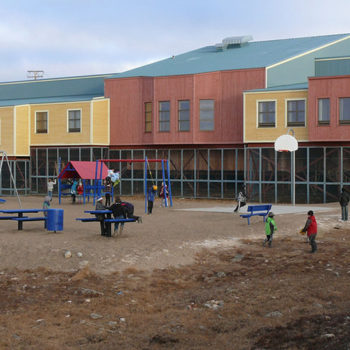Educating girls in the networked classroom: Collaboration with The eQuality Project
Anyone who spends time with girls knows they are dynamic and prolific users of social technologies. Compared to their boy classmates, teenage girls dominate the numbers of popular social media sites including Instagram, Twitter and Snapchat. A 2012 study reported the average teen sends around 60 texts a day while the number for older teenage girls jumps closer to 100 texts a day. It is safe to say those numbers have only increased in the last five years. Recent studies also suggest girls are more likely than boys to be targeted by sexualized online attacks, as well as young people who are disabled, and members of LGBTQQ, racial minority and Indigenous communities who are also particularly vulnerable to cyberviolence. What do these realities mean for educators in the networked classroom?
Teachers offer years of experience understanding the conflicts and capabilities of young people. In their role, they are a guiding force in girls’ educational experiences, and in recognizing their right to engage as equal digital citizens.
Perhaps first and foremost, educators and girls — particularly girls from the equality-seeking communities mentioned above — have an opportunity for reciprocal learning about communication, education, and young people’s seamlessly integrated online/offline existences. Teachers offer years of experience understanding the conflicts and capabilities of young people. In their role, they are a guiding force in girls’ educational experiences, and in recognizing their right to engage as equal digital citizens. On the flip side, girls’ expert knowledge and lived experiences in their online communities are a rich resource for teachers, some of whom may not be connected to current online trends and practices of their students.
Over the last several years, education laws, regulations and policies in many Canadian jurisdictions have been changed to explicitly require schools and school boards to develop practices and policies that ensure a safe and accepting environment for diverse communities of students, while also encouraging use of technologies for classroom learning. Further, education legislation specifically address cyberbullying was adopted in Alberta, Manitoba, New Brunswick, the Northwest Territories, Nova Scotia, Ontario and Quebec — a trend that is likely to spread across the country. Educators in some regions have the authority to address cyberbullying that occurs outside of school hours so long as it is affecting the culture and learning environment of the school. As a result, many teachers find themselves on the front line, working to educate their students on how they should use new technologies and then to intervene when things go sour.
These changes came about, in part, because teachers are well positioned to address young people’s legal and ethical relationships with digital spaces. Experts in cyberbullying and cyberviolence have recognized time and again (PDF – 971 KB) that teachers play a key role in helping girls navigate the risks and benefits of online spaces. In order to be responsive to the needs of girls, educators must engage with and listen to girls from all communities to better understand their experiences online, and to their perspectives on educational responses deemed likely to be successful, as well as those likely to fail.
Learning from girls’ experiences, combined with continuing education material that emphasizes a human rights approach, teachers are placed in an excellent position to educate students about digital citizenship as well as girls’ equal rights of participation in our digitally networked world.

Educational dialogue around these issues opens up opportunities to meaningfully engage girls in developing educational tools that are grounded in girls’ own lived experiences, needs and aspirations. Research from The eGirls Project and The eQuality Project shows girls have developed a number of tools for identifying and navigating problematic online interactions. Their experiences in online communities are a largely untapped resource for educators who want to work to improve young people’s digital citizenship skills.
Fortunately, educators also have access to a growing body of educational materials and policies developed by organizations such as the Canadian Teachers’ Federation and MediaSmarts that address cyberbullying, provide digital literacy frameworks and offer guidelines for teachers on the use of social media in the classroom. But even with these policies in place, it can feel arduous at times for educators to address the challenges of cyberviolence and systems of discrimination such as racism, sexism and homophobia that often underlie it. Getting to root causes, rather than strictly relying on reactive and punitive responses to individual situations is a necessary but daunting task perhaps best accomplished through multi-sector collaboration. It is exactly this sort of collaboration The eQuality Project seeks to facilitate.
The eQuality Project is a Social Sciences and Humanities Research Council funded partnership project that brings together scholars, educators, policy makers, non-profit organizations and young people to understand how best to achieve online equality for Canadian youth, by addressing issues such as cyberviolence and the ways in which corporate structuring of the online environment shapes young people’s interactions and, in some instances, sets them up for conflict. The Project is working to collaboratively develop resources and best practices informed by the expertise of both educators and their students as they address digital citizenship from a human rights perspective. Our collaboration includes workshops for educators, policy makers, government bodies and privacy organizations, such as Privacy Implications in the Networked Classroom, hosted by eQuality partner The Alberta Teachers’ Association with support from the Big Data Project and the Office of the Information and Privacy Commissioner of Alberta.
For more information on The eQuality Project research, workshops and engagement opportunities, visit our website, sign on to The eQuality Project list serve or follow us on Twitter @eQuality_ca.
Editor’s note: The Canadian Teachers’ Federation is proud to support and participate in The eQuality Project through research, analysis and communication activities.


